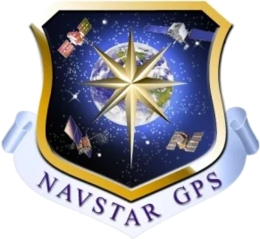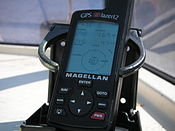global positioning system
The Global Positioning System (GPS), originally Navstar GPS, is a satellite-based radio navigation system owned by the United States government and operated by the United States Space Force. It is one of the global navigation satellite systems (GNSS) that provide geolocation and time information to a GPS receiver anywhere on or near the Earth where there is an unobstructed line of sight to four or more GPS satellites. It does not require the user to transmit any data, and operates independently of any telephone or Internet reception, though these technologies can enhance the usefulness of the GPS positioning information. It provides critical positioning capabilities to military, civil, and commercial users around the world. Although the United States government created, controls and maintains the GPS system, it is freely accessible to anyone with a GPS receiver.
 Logo | |
| Country/ies of origin | United States |
|---|---|
| Operator(s) | US Space Force |
| Type | Military, civilian |
| Status | Operational |
| Coverage | Global |
| Accuracy | 30–500 cm (0.98–16 ft) |
| Constellation size | |
| Nominal satellites | 24 |
| Current usable satellites | 38 (32 operational) |
| First launch | February 22, 1978 |
| Total launches | 75 |
| Orbital characteristics | |
| Regime(s) | 6 MEO planes |
| Orbital height | 20,180 km (12,540 mi) |
| Orbital period | 1⁄2 sd or 11 hours and 58 minutes |
| Revisit period | 1 sidereal day |
| Other details | |
| Cost | $12 billion (initial constellation) $1.84 billion per year (2023) (operating cost) |
| Website | gps.gov |




